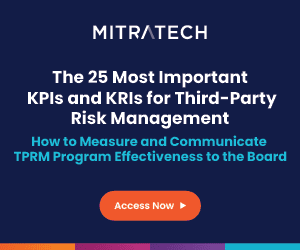The return of Donald Trump to the White House signals dramatic shifts in sanctions policy and anti-money laundering enforcement priorities. Paul | Weiss partners Jessica Carey, Nicole Succar, Jacobus Schutte and Roberto Gonzalez and counsel Samuel Kleiner analyze the early executive actions targeting Iran, cartels and China, highlighting how compliance professionals should prepare for a regulatory environment that maintains enforcement vigor while redirecting its focus.
Authors Jessica Carey, Nicole Succar and Jacobus Schutte are partners and Samuel Kleiner is a counsel, in the New York office of Paul, Weiss, Rifkind, Wharton & Garrison. Roberto Gonzalez is a partner in the firm’s Washington DC office. Samuel Rebo, Rachel Gallagher, Kevin P. Madden and Jennifer Gilbert, associates at the firm, contributed to this report.
While the Trump Administration will bring significant changes to the sanctions and anti-money laundering (AML) regulatory environment, we expect that enforcement in this area will remain a priority and companies will need to remain vigilant in maintaining and updating their compliance programs.
Here, we reflect on the landscape in 2024, the final year of the Biden Administration and describe the early moves by the Trump Administration to reshape that landscape. We also identify key compliance factors companies should consider as they adapt in this dynamic environment.
The landscape in 2024
Almost three years after Russia’s invasion of Ukraine, the Treasury Department’s Office of Foreign Assets Control (OFAC) continued tightening sanctions on Russia, including combatting efforts to evade these sanctions. OFAC deployed significant sanctions targeting, among others, the Russian financial and energy industries.
OFAC also took action in other sanctions programs to advance US foreign policy objectives, including by further targeting individuals and entities involved in terrorist financing, Hamas- and Hezbollah-affiliated individuals and entities and individuals and entities involved in Iran’s nuclear program. OFAC also designated numerous Chinese entities and individuals under various sanctions programs, including for the evasion of US sanctions targeting Russia.
In 2024, OFAC issued 12 enforcement actions, totaling about $49 million in civil penalties — a significant drop from OFAC’s $1.5 billion in penalties in 2023, most of which was attributable to the Binance resolution.
In 2024, Congress also significantly expanded sanctions enforcement authorities by doubling the statute of limitations that apply to civil and criminal sanctions violations from five to 10 years. In line with this extension, OFAC issued a rule that similarly extends private parties’ recordkeeping requirements from five to 10 years.
In terms of AML developments, the Treasury Department’s FinCEN issued a number of significant final or proposed regulations, including rules extending AML requirements to certain investment advisers and certain non-financed real estate transactions.
FinCEN also undertook a significant rule-making to update AML program requirements across financial institutions. 2024 also marked the beginning of FinCEN’s administration of its beneficial ownership regulation under the Corporate Transparency Act (CTA), which required millions of legal entities to report their beneficial ownership information to FinCEN. That rule has been subject to extensive litigation and, most recently, Treasury announced its intention to propose a new rule that would narrow the scope of the reporting requirements to certain non-US entities. Taken together, these developments represented some of the most significant updates to the AML regulations in years.
FinCEN also issued three enforcement actions in 2024 — against a global financial institution, a casino and an individual — totaling just over $1.3 billion, compared to its approximately $3.7 billion in penalties issued against Binance and other entities in 2023.
In 2024, the DOJ maintained its focus on sanctions and AML enforcement. In addition to leading a multi-agency AML resolution with a global bank, the DOJ resolved AML cases with three casinos (and certain of their executives), initiated or resolved AML cases involving two crypto-related platforms and brought a number of prosecutions against individuals for Russia-related sanctions and export control evasion. On the policy front, the department issued new policies and guidance to incentivize corporations to self-report violations through voluntary self-disclosures while also issuing policies to encourage individuals to provide information on corporate misconduct.
Banking regulators also remained active in the sanctions/AML space, including through enforcement actions by the Federal Reserve Board of Governors, the Office of the Comptroller of the Currency , the FDIC and New York’s Department of Financial Services. The federal banking agencies issued two nine-figure and two eight-figure AML penalties, as well as a number of no-penalty resolutions, some of which imposed significant remedial measures. New York’s Department of Financial Services issued enforcement actions focused on AML deficiencies against multiple banks and crypto-related entities.
In total, over the course of 2024 federal and state authorities imposed approximately $3.6 billion in penalties and asset seizures for sanctions/AML violations. This total is on par with the total penalties and seizures imposed in 2023 and 2022 (just under $4 billion each year) and is consistent with the heightened enforcement environment in recent years.
Changes under the Trump Administration
Since President Donald Trump’s inauguration Jan. 20, he has issued executive orders and presidential memoranda initiating significant changes across US foreign and domestic policy. In his first term, Trump showed a heightened interest in using economic sanctions — and the principal statute underlying most sanctions, the International Emergency Economic Powers Act — as a key tool of foreign policy, and that trend has continued in his second term.
Trump’s sanctions initiatives in his first weeks in office include:
Iran
On Feb. 4, Trump issued a national security memorandum directing various cabinet agencies to “impose maximum pressure on the Iranian regime to end its nuclear threat, curtail its ballistic missile program, and stop its support for terrorist groups.” This includes the imposition of new sanctions and export controls, the narrowing of existing licenses or guidance providing some room for US-nexus Iran transactions, and calling on the Treasury Department to consider imposing “Know Your Customer’s Customer” obligations with respect to Iran-related transactions and to assess beneficial ownership thresholds to ensure sanctions “deny Iran all possible illicit revenue.”
Cartels
On Jan. 20, Trump issued an executive order directing members of his cabinet to provide recommendations on “designating cartels and other organizations as foreign terrorist organizations and specially designated global terrorists.” The foreign terrorist organization (FTO) designation has traditionally been applied to terrorist organizations, like Al-Qaeda, Boko Haram, Hezbollah and the Islamic State. While OFAC previously designated certain cartels as specially designated nationals (SDNs), the FTO designation could carry heightened civil and criminal risks for US and non-US businesses and their executives that operate in areas where the designated cartels operate. On Feb. 19, the State Department designated a number of Mexican drug cartels, as well as MS-13 and a Venezuelan gang Tren de Aragua, as FTOs.
International Criminal Court
On Feb. 6, Trump issued an executive order authorizing sanctions related to the International Criminal Court for “illegitimate and baseless actions targeting America and our close ally Israel” and specifically imposing sanctions on Karim Asad Ahmad Khan, the prosecutor of the ICC.
China
On Jan. 20, Trump issued a presidential memorandum titled “America First Trade Policy” to members of his economic cabinet, directing them to take a variety of measures “establishing a robust and reinvigorated trade policy.” The memorandum included a number of directives focused on China, including: a review of Treasury’s outbound investment rule to ensure it includes “sufficient controls”; a review of existing Section 301 actions against China; and a review of export controls enforcement to “identify and eliminate loopholes in existing export controls.” Trump has already increased tariffs on imports from China by 10% (under a novel use of IEEPA) and is expected to take additional actions relating to China involving economic tools including sanctions, export controls and other measures. On Feb. 21, Trump issued a memorandum titled “America First Investment Policy,” which, among other things, signaled consideration of broadening Treasury’s outbound investment rule to China to cover additional sectors and of increased blocking sanctions and Chinese military industrial complex (CMIC) sanctions on Chinese companies “to further deter United States persons from investing in the PRC’s military-industrial sector.”
Russia
Trump has stated that he will seek to negotiate a resolution to the ongoing conflict in Ukraine. While a resolution of the conflict could result in the reduction of sanctions on Russia, the Trump Administration has signaled that it will maintain sanctions in the lead-up to a negotiated resolution. However, there have already been notable developments, including that Attorney General Pam Bondi directed various components of the DOJ to prioritize cartel-related investigations and prosecutions and disbanded Task Force Klepto Capture, a task force created by the prior administration that was focused on enforcing sanctions on Russia.
In terms of AML policy, the Trump Administration’s deregulatory focus may lead to a more restrained AML rulemaking approach. Trump’s pro-innovation stance on cryptocurrency and blockchain technology also suggests that his administration may modulate FinCEN’s more aggressive regulatory measures in this area. Trump’s supporters have also focused on the issue of “de-banking” — alleging that banks have de-banked customers based on political agendas — suggesting that de-banking may become a priority for the administration.
Strengthening sanctions/AML compliance
US and non-US companies should carefully monitor for rapid changes to administration policy and should consider refreshing their national security risk assessments in a holistic manner that covers anticipated sanctions, AML, export controls and related policy shifts under the Trump Administration. Based on these assessments, companies could consider enhancing policies and procedures, including around customer or counterparty due diligence; updating training; and ensuring contracts have sufficiently broad sanctions- and export control-related provisions. Among other things, companies should consider:
Evaluating China-related risk
Many China-related sanctions and export controls that began during the first Trump Administration were maintained and expanded by the Biden Administration. They now appear to have significant potential for further expansion in the second Trump Administration. Throughout 2024, the US government’s expanded measures have included the sanctioning of Chinese entities determined to be engaged in the circumvention of US sanctions targeting Russia, North Korea and Iran. The US government has also taken steps to expand US export controls targeting China, particularly with regard to semiconductors, artificial intelligence, items used in supercomputers and other cutting edge technologies. Depending on a company’s size, business lines and level of exposure to China, a holistic national security risk assessment would not only incorporate sanctions, AML and export control risk but would also consider the new and expanding regulatory regimes that increase the risk of China-related business dealings and investment, including Treasury’s new outbound investment restrictions, DOJ’s new regulations restricting data transactions with China and Russia-related companies and Commerce’s information and communications technology and services (ICTS) rulemakings and investigations.
Consider Increased attention on drug-trafficking
The DOJ has brought several Bank Secrecy Act/AML cases involving the flow of narcotics-related funds through major financial institutions, and FinCEN has issued alerts warning financial institutions about the illicit fentanyl supply chain and deceptive financial practices used to hide this activity. More recently, Trump has issued an executive order on designating cartels as FTOs and on Feb. 19, the State Department made a number of such designations. In this environment, financial institutions and other companies may consider refreshing their risk assessments and, if warranted, their compliance measures aimed at drug trafficking.
Iran-related diligence
In the first Trump Administration, the “maximum pressure” campaign against Iran included new sanctions targeting entire sectors of the Iranian economy, including secondary sanctions and dozens of sanctions designations. US and non-US companies should carefully monitor new Iran-related sanctions and export controls and prepare for increased criminal and civil enforcement in this area. Financial institutions should closely monitor Treasury’s determination with respect to the “Know Your Customer’s Customer” standard, which could meaningfully increase the burdens financial institutions bear in conducting business with a range of customers and geographies.
While we expect that sanctions/AML enforcement under the Trump Administration will refocus in terms of priorities, there has traditionally been bipartisan support across administrations for enforcement in this area, and Trump’s first term saw a number of significant sanctions/AML penalties.
Companies should take steps to evaluate their preparedness in this new regulatory climate. The new 10-year statute of limitations for sanctions violations, combined with the five-and six-year statutes of limitations for criminal and civil AML violations, respectively, provide further reason to maintain vigilance in financial crimes compliance.










